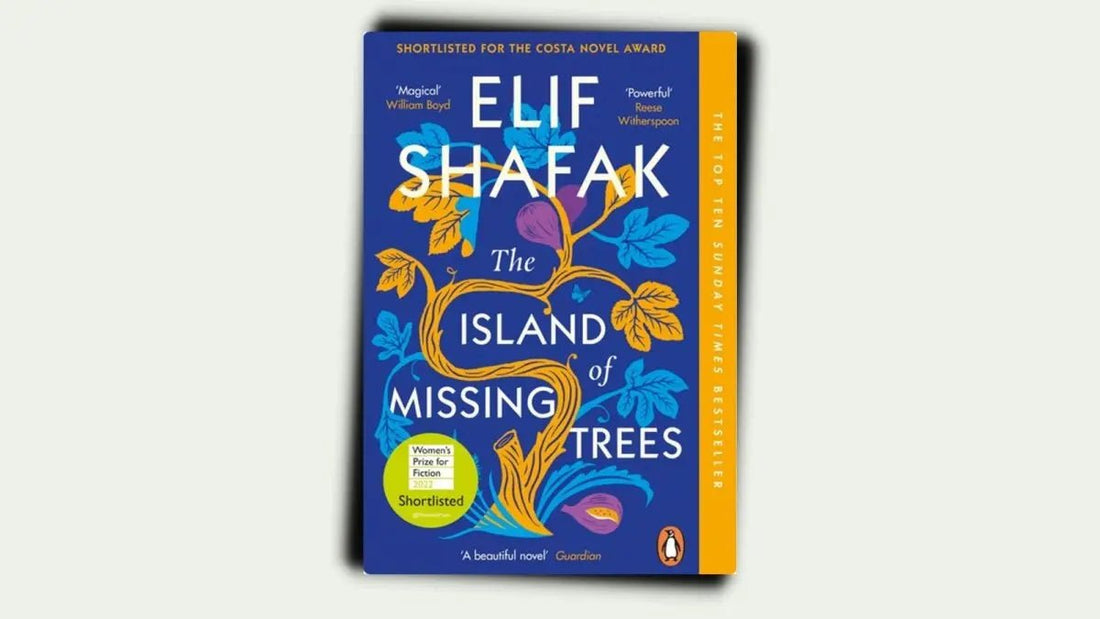
Book Review by Pat Allchorne: The Island of Missing Trees by Elif Shafak
Share
I found this book in a charity shop and was intrigued by its title. After reading the blurb on its back cover and the reviews inside, it had to be bought.
It is basically a love story, but just to call it that is to do it a gross injustice.
It is partly set in Cyprus during the civil war of 1974 between the Greek Cypriots and the Turkish Cypriots and partly in present-day England, and every other chapter or so is written by a fig tree – bear with me on this.
We first hear of the fig tree in Cyprus in the 1970s, but a cutting from it migrates to England (along with the main protagonists). The narrative written by the tree gives us the history, myths, superstitions and folklore of Cyprus, and its musings on people are wise and insightful. We also learn something about the natural history of trees generally.
One of the tree’s thoughts is that if people communicated and helped each other the ways trees of different species do, the world would be a far better place - and who can argue with that? Once into this book, I found it un-put-downable; the characters are well-drawn & real, they are passionate about life and beliefs, and the historical facts are thoroughly researched.
The story has two timelines, one set in 2010s London following 16-year old Ada Kazantzakis, and the other mainly in 1970s Cyprus, following Defne and Kostas, Ada's parents.
A third narrative voice is a fig tree, who lived in the middle of a tavern in Cyprus, before a cutting was taken by Kostas and planted in his and Defne's English garden. Ada's story looks at her grief with the loss of her mother, and her exploration of her cultural history, through her aunt Meryem's visit.
The past follows the Turkish Cypriot Defne and Greek Cypriot Kostas falling in love on a divided island. Kostas is sent to London to live with his uncle, whilst Defne is left behind, with a secret. Through it all, the fig tree watches, offering insight into the characters’ past, the natural world, and the history of Cyprus.
It is gentle and challenging at the same time, thought-provoking and encouraging, and I can’t wait to read more books from this author.
A rich, magical new book on belonging and identity, love and trauma, nature and renewal, from the Booker shortlisted author of 10 Minutes 38 Seconds in This Strange World.
Two teenagers, a Greek Cypriot and a Turkish Cypriot, meet at a taverna on the island they both call home. In the taverna, hidden beneath garlands of garlic, chili peppers and creeping honeysuckle, Kostas and Defne grow in their forbidden love for each other. A fig tree stretches through a cavity in the roof, and this tree bears witness to their hushed, happy meetings and eventually, to their silent, surreptitious departures. The tree is there when war breaks out, when the capital is reduced to ashes and rubble, and when the teenagers vanish. Decades later, Kostas returns. He is a botanist looking for native species, but really, he’s searching for lost love.
Years later a Ficus carica grows in the back garden of a house in London where Ada Kazantzakis lives. This tree is her only connection to an island she has never visited -- her only connection to her family’s troubled history and her complex identity as she seeks to untangle years of secrets to find her place in the world.
A moving, beautifully written and delicately constructed story of love, division, transcendence, history and eco-consciousness, The Island of Missing Trees is Elif Shafak’s best work yet.

ABOUT THE AUTHOR | WEBSITE
Elif Shafak is an award-winning British-Turkish novelist and the most widely read female author in Turkey.
She writes in both Turkish and English, and has published seventeen books, eleven of which are novels. Her work has been translated into fifty languages. Shafak holds a PhD in political science and she has taught at various universities in Turkey, the US and the UK, including St Anne's College, Oxford University, where she is an honorary fellow. She is a member of Weforum Global Agenda Council on Creative Economy and a founding member of ECFR (European Council on Foreign Relations).
An advocate for women's rights, LGBT rights and freedom of speech, Shafak is an inspiring public speaker and twice a TED Global speaker, each time receiving a standing ovation. Shafak contributes to major publications around the world and she has been awarded the title of Chevalier des Arts et des Lettres. In 2017 she was chosen by Politico as one of the twelve people who would make the world better. She has judged numerous literary prizes and is chairing the Wellcome Prize 2019.